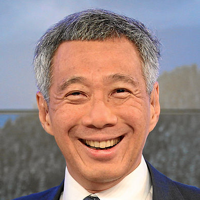The United States' relationship with Singapore has been and continues to be one of its most important and successful in the Asia-Pacific. Despite its small size, Singapore has transformed itself into a major player in Southeast Asia and the broader global economy, and has been a consistent supporter of a strong U.S. presence in Asia. Today, the city-state is America's 13th-largest trading partner, hosts U.S. naval ships in its waters, serves as a model for Washington on issues such as education and offers valuable strategic advice to the United States on a variety of policy questions.
These past few weeks have seen a further broadening and deepening of the strategic partnership between the United States and Singapore. The two countries inked a raft of important agreements that laid out a joint vision for a new political framework, institutionalized a strategic dialogue at the senior level and further enhanced collaboration in areas such as education and joint technical assistance to developing countries. The flurry of diplomatic activity was punctuated by an all-day conference in early February devoted to U.S.-Singapore relations organized by the Center for Strategic and International Studies (CSIS) in Washington.
Yet while officials note that ties are at an all-time high, the relationship still faces lingering concerns and challenges. For Singapore, the biggest worry now appears to be how America will manage the rise of China. The U.S. and Singaporean leaderships both agree that integrating China more fully into the existing international order is critical to ensuring stability in Asia. But as a small state, Singapore is at times more sensitive and attentive to potential tensions between big powers, which complicate its efforts to balance ties with geopolitical heavyweights and increase the risk of it having to choose between them. That explains why Singaporean Foreign Minister K. Shanmugam repeatedly warned (.pdf) during his visit that anti-China rhetoric in American media circles should not be dismissed cavalierly, even if it is not uniformly shared by U.S. policymakers, because such rhetoric “can create a new and unintended reality for the region.”

